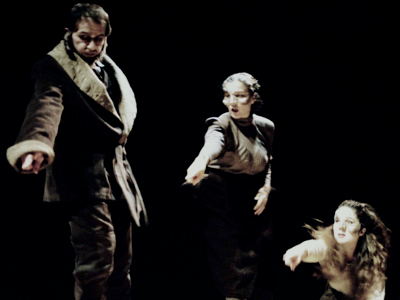
The word ‘story’ cannot be defined, at least not simply, for no one definition can encompass the dozens of functions that human society keeps asking its stories to fulfil. It’s what makes the idea of ‘story’ impossible to define precisely. Take the following dictionary definitions of a story “ A narrative, either true or fictitious, in prose or verse, designed to interest or amuse the hearer or reader’, and ‘A narration of events in the live of a person or the existence of a thing, or such events as a subject for narration.”
As a writer and creator of dramatic fictions, I believe that the only value of dramatic theory—even the theory contained in this book– is to help us write better. The above dictionary’s definition is of little use to a writer seeking to learn the craft of how stories are made. Why? Because a story is a complex historical and cultural construction, and is the sum of many things– an entertainment, a meditation on some deep truth, a game, a flexing of the imagination, an excuse to laugh. We could list dozens of functions that human society keeps asking stories to fulfil. It’s what makes the idea of “story” impossible to precisely define. I’ve tried, and so have others. All I can do is offer a set of descriptions, which are reflections of their functions. Here’s a quick list:
- A story is a game, which use the inner muscle of the imagination.
- A story is about the audience that watches and listens, even as it pretends to be about the characters in the story.
- A story is a set of encoded meanings with relatively clear implications about ‘how to live’– or how not to live, how you might live and how others live.
- A story is a cosmic statement of humanity’s place in the universe.
- A story is a narrative pattern, using recognised mile-posts (eg beginning, ending, climax.)
- A story is an agreement between teller and audience to abide by certain rules and conventions, depending on the story form, style or genre.
- A story is a meditation on things almost too deep, or high, for words. (If you doubt this, see King Lear and its unbearable ending.)
- A story is a chance for an audience to dream about something (love, lost opportunities, sex, or their dull childhood.)
- A story is a deliberate agreement to fantasise about something (“What if…?”)
- A story is a deliberate attempt to stir up the audience’s fears about something it is already deeply anxious about (whether it knows it or not.) — A story is a chance to air and debate social, political, moral and ethical issues.
- A story is a reminder to its audience that we are social beings who live in a society.
- A story is an invisible arrangement of incidents in an aesthetically pleasing manner.
The last definition, though as spontaneously invented as the others, has just enough of a ring of classical authority to allow me to throw a final one on the fire:
- A story is a structured unleashing of the imagination, using symbolic, real and fictional elements so as to make this unleashing richer and more powerful than other ‘structured unleashings’ (eg teaching, therapy, game playing, sermon, speech or dreaming.)
All the above raise big issues that a humble, practical “dramatist’s workbook” cannot hope to answer, so I’ll simply suggest that you must decide for yourself what a story is, because the only thing that really matter is that you make a working definition for yourself, and then get writing, as soon as possible.